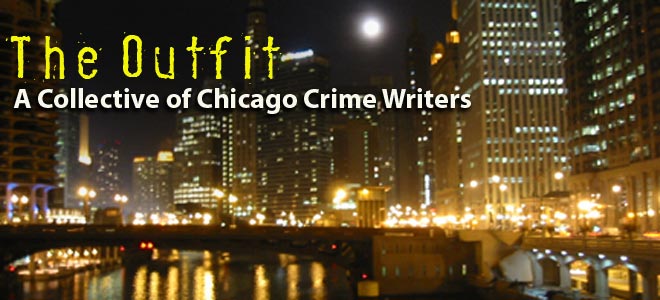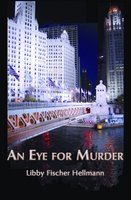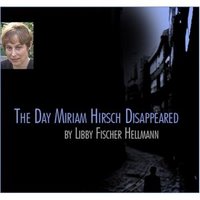I got the assignment because I earned it, beating out cut-throat competition to interview the world’s foremost expert on death. It was a plum, made sweeter by the rumor that the dean of death was dying; there might be no more interviews after mine. He offered me a day--sun-up to moonrise, a curious division.
I arrived as the first third of the sun’s disk cleared the horizon, casting its warm rays down the central corridors of his house. The place was white and architecturally austere. He’d employed simple materials everywhere--wood and wool and cotton, slate and stone, glass and linen. The effect was pleasing. A slab of polished marble for table. Dried flowers in a spheroid vase. The steel ring of an engine gear framing an ivory Kali.
His books filled an entire wall of shelves. He had classical representations, from Bosch to Mozart’s
Requiem. His photographs were hellish--corpses at Aushwitz, mountains of skulls in Cambodia, piles of body parts in Africa. His own monument to mortality had raised the subject to an art form. He had immersed himself in death, its lore refined and polished.
“All this will go to the University, one day,” he told me. A pernicious bequest.
He took me through the course: “Homo erectus was a cannibal. Death obviously meant a full belly. For someone. “Neandertal buried his dead with flowers. Cro magnon surrounded his with magic and red ochre. “The Egyptians and the Maya planned for eternity... “The Vikings cheated death and grave robbers simultaneously... “The Jews were divided... “And so we come to Christianity, the ultimate death defying feat. Behind the sacristy curtain we find the wizard of Oz--but he gave them what they needed, didn’t he?”
He pointed to pictures of Arlington cemetery and Flanders Field and said, “War has been always with us. Wars throughout history have served Death and left it monuments... So to the present.”
He held up the photo of a skeletal man on life supported by tubes and wires and monitors. “The ultimate absurdity. We’ve made a living monument to death.” But no one gets out alive.
For luncheon we had the blood of grapes and little silver fishes, eyes fixed and dilated.
Afterward, he took me room to room and showed me violent ends in slow-mo.
“Hollywood captures the excitement without the loss," and "
God is dead. Neitche. But Neitche is also dead, so where did killing God get him?”
“Have you ever killed,” I asked.
He shook his head, sadly I thought, and I believe he murmured, “Not yet.”
He showed me videos of creatures--chickens, small dogs, monkeys--killed with knives, with wire, with flaked obsidian and jade, with a remarkable paucity of blood, or with blood that seemed black as in a photograph, not red, not vivacious.
No acolyte was more lovingly instructed. I took copious notes.
He tried to interest me in joining his experiments but I resisted. “Objectivity is all,” I said. “I can’t retain my credibility without it.”
The sun passed overhead. When its gold probed the white hall from the western end, he took me to his kitchen, where I watched his chef murder a rabbit. It kicked once, and its life slipped down the drain. My host seemed to drink in the experience, then to dismiss it. “Dinner,” he said.
The rabbit was delicious, and later, over dessert, he promised me the ultimate experience.
I recalled how my mother (of the huge, guilt provoking eyes), on hearing of my fortunate assignment, told me, “He will cause you pain.”
“Well, then, I’ll suffer,” I had said.
I recalled this conversation after dinner, after soporific wine. As my lids closed, weighted by the day, by death, perhaps by laudanum in my coffee.
I awakened on his couch (but I had not been ravaged), covered with a shroud of eggshell linen.
He was not in the room, but I became aware of sounds, in the adjoining room, of knives being stropped.
I was filled with fear such as I’d never known, with dread, with loathing, and the conviction I would soon experience death in the most immediate way. I threw the cover off with terror to find a cord tied round my waist, a dark, fibrous umbilicus of natural hemp. When I released the tension on this thread, he came in, rushing from the nether room in panic.
“No! It’s too soon. I'm not ready yet!”
I tried to push past, but he anticipated my evasion like a dancer, like a lover, knowing his beloved’s every whim.
He raised the knife, and I was mesmerized.
The blade gleamed in the shining moonlight. I was immobilized.
His grip twisted til he held the knife before him, palm inward, point upward, like a talisman. He held my eyes with his. Then he brought the blade across with a sure and savage joy, with a cry like a lover's climax. The blade bit silently. The line between life and death drawn definitively, across his throat’s white flesh with his own lifeblood, with a single, clean stroke. He managed only two words, at once a challenge and a plea.
“You see?”
© 2000 by MADymmoch
first published in Blue Murder Magazine







